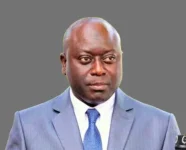The Ministry of Transport pushed back Wednesday evening against comments made by UDP leader Ousainu Darboe. They called his Tuesday claims about the government selling Banjul Port to Turkish company Albayrak completely false. The ministry stated these remarks were made up to hurt a business deal that would improve port services across The Gambia. They explained their team worked with an international advisory firm that helped create similar projects in over ten countries.
The ministry criticized Darboe for his poor understanding of port operations. They defended current port managers against his claims they lacked skills compared to previous teams. Banjul Port remained small through the late 1980s before expanding in 1992. Back then The Gambia had under 700,000 people, with imports below 500,000 tons matching the smaller population. After the 2016 government change, shipping traffic grew beyond expectations, causing major congestion problems at the port.
Port management has paid record amounts to the government in recent years. They gave $20 million in 2018, which jumped to $190 million by 2021. The current managers have made several improvements since taking over. These include changing worker contracts, raising salaries, starting a new port project, signing fresh agreements, and paying more money to the government. The deal with Albayrak requires zero financial input from the government yet allows them to keep 20% ownership and all fixed assets.
The agreement does not sell the port, as Darboe claimed. All fixed assets stay under government control. Albayrak can use the facilities but must pay a percentage of total revenue to the government. The Gambia remains one of just two countries in West Africa where ports remain publicly owned. Albayrak plans to invest $19 million over six years to improve efficiency. This includes buying equipment, expanding facilities, and building truck parking areas.
The government will receive $5 million for movable assets plus 4% of yearly revenue. Some profits will fund a new deep seaport at Sanyang. Current staff members keep their jobs with identical employment terms. The port authority maintains board seats and management positions in the project company. Albayrak accepts all financial risks without government money. Their traffic forecasts exceed initial projections, and they plan deeper water access than first proposed.
Business costs should decrease as capacity increases. Bigger ships can dock at Sanyang, bringing lower shipping rates. The government benefits from improved infrastructure, dividend payments, and inland ports at Basse and Kaur. Local companies can join ventures at these inland locations. Albayrak must pay 1% of the total investment value as local content provision. Their project scope includes developing Banjul Shipyard as part of the overall investment.
The ministry emphasized that the port remains 100% government property. Only management and operations transfer to Albayrak. Harbor and mooring services stay under direct government control. They urged people to ignore misinformation from UDP supporters since the port deal announcement. The ministry claimed these false stories aimed to start pointless arguments on social media that might damage the government. They stated such attempts have completely failed.
The ministry criticized Darboe for his poor understanding of port operations. They defended current port managers against his claims they lacked skills compared to previous teams. Banjul Port remained small through the late 1980s before expanding in 1992. Back then The Gambia had under 700,000 people, with imports below 500,000 tons matching the smaller population. After the 2016 government change, shipping traffic grew beyond expectations, causing major congestion problems at the port.
Port management has paid record amounts to the government in recent years. They gave $20 million in 2018, which jumped to $190 million by 2021. The current managers have made several improvements since taking over. These include changing worker contracts, raising salaries, starting a new port project, signing fresh agreements, and paying more money to the government. The deal with Albayrak requires zero financial input from the government yet allows them to keep 20% ownership and all fixed assets.
The agreement does not sell the port, as Darboe claimed. All fixed assets stay under government control. Albayrak can use the facilities but must pay a percentage of total revenue to the government. The Gambia remains one of just two countries in West Africa where ports remain publicly owned. Albayrak plans to invest $19 million over six years to improve efficiency. This includes buying equipment, expanding facilities, and building truck parking areas.
The government will receive $5 million for movable assets plus 4% of yearly revenue. Some profits will fund a new deep seaport at Sanyang. Current staff members keep their jobs with identical employment terms. The port authority maintains board seats and management positions in the project company. Albayrak accepts all financial risks without government money. Their traffic forecasts exceed initial projections, and they plan deeper water access than first proposed.
Business costs should decrease as capacity increases. Bigger ships can dock at Sanyang, bringing lower shipping rates. The government benefits from improved infrastructure, dividend payments, and inland ports at Basse and Kaur. Local companies can join ventures at these inland locations. Albayrak must pay 1% of the total investment value as local content provision. Their project scope includes developing Banjul Shipyard as part of the overall investment.
The ministry emphasized that the port remains 100% government property. Only management and operations transfer to Albayrak. Harbor and mooring services stay under direct government control. They urged people to ignore misinformation from UDP supporters since the port deal announcement. The ministry claimed these false stories aimed to start pointless arguments on social media that might damage the government. They stated such attempts have completely failed.












